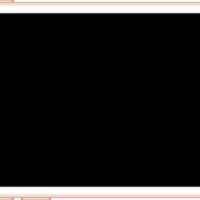Sinus infections can be a real pain. They can leave you feeling foggy and stuffy. Millions suffer from them every year. Understanding how to manage and treat these infections can lead to relief. Let’s explore effective ways to tackle sinus infections.
The Prevalence of Sinus Infections: Shocking Statistics
Sinus infections, also known as sinusitis, affect about 30 million adults in the U.S. each year. Many people experience symptoms like nasal congestion, headaches, and facial pain. With such a high number affected, knowing how to find relief is crucial.
Understanding the Root Causes: Beyond Just a Cold
Sinusitis can stem from a variety of causes:
- Viral infections: Often start with a cold, but can evolve.
- Bacterial infections: May occur if a virus lingers.
- Allergies: Reactions to pollen, dust, or pet dander can trigger sinus issues.
- Environmental irritants: Smoke, strong odors, and pollution can worsen symptoms.
Your Path to Relief Starts Now
Finding relief from a sinus infection involves a mix of home remedies and professional care. Let’s look into some effective solutions.
Home Remedies for Sinus Infection Relief
Natural Solutions: Steam, Saline Rinse, and Essential Oils
Using steam inhalation can help open nasal passages. Try filling a bowl with hot water, draping a towel over your head, and inhaling the steam. Saline rinses can also clear out mucus. You can buy pre-made solutions or make your own with salt and warm water. Essential oils like eucalyptus or peppermint can assist in relieving blocked sinuses when added to steam or diffused in your space.
Over-the-Counter (OTC) Medications: Decongestants, Pain Relievers
Common OTC options include:
- Decongestants: These can shrink swollen nasal membranes.
- Pain relievers: Ibuprofen or acetaminophen can lessen discomfort. Always read labels and follow instructions to maximize benefits.
Hydration is Key: The Power of Water and Electrolytes
Drinking plenty of fluids helps thin mucus. Aim for water, herbal teas, or broths. Staying hydrated not only eases pain but also helps you recover more quickly.
When to Seek Professional Medical Help
Recognizing Serious Symptoms: Warning Signs to Watch For
Not every sinus infection needs a doctor. However, watch for these signs:
- Symptoms last longer than 10 days.
- Severe headaches or facial swelling.
- High fever (over 102°F).
- Vision changes or double vision.
Diagnostic Tests and Procedures: What to Expect from Your Doctor
If you visit a doctor, they may perform:
- Nasal endoscopy: Checking sinuses with a tiny camera.
- CT scans: Imaging to assess sinus cavities.
- Allergy tests: To identify triggers if allergies are suspected.
Treatment Options from Your Physician: Antibiotics and Other Interventions
If a bacterial infection is confirmed, antibiotics might be prescribed. Other treatments may include:
- Steroid nasal sprays: Help reduce inflammation.
- Surgery: In extreme cases, to remove blockages.
Preventative Measures for Sinus Health
Boosting Your Immunity: Lifestyle Choices for Stronger Defenses
Maintain a healthy lifestyle to strengthen your immune system:
- Eat a balanced diet rich in fruits and vegetables.
- Get enough sleep each night.
- Manage stress through mindfulness or relaxation techniques.
Environmental Factors: Controlling Allergens and Irritants
Consider these tips to reduce exposure to allergens:
- Use air purifiers in your home.
- Keep windows closed during high pollen seasons.
- Regularly clean to minimize dust accumulation.
Practicing Good Hygiene: Simple Habits to Minimize Infection Risk
Basic hygiene can make a big difference:
- Wash your hands regularly.
- Avoid close contact with sick individuals.
- Don’t share personal items like towels.
Lifestyle Changes for Long-Term Sinus Health
Dietary Adjustments: Foods to Eat and Avoid for Sinus Relief
Certain foods can either help or hinder your sinus health:
- Eat more: Foods high in antioxidants, such as berries, and omega-3 fatty acids like salmon.
- Avoid: Dairy products and processed foods that might contribute to mucus production.
Stress Management Techniques: The Mind-Body Connection to Sinus Health
Stress can impact your overall health, including sinuses. Try activities like yoga, meditation, or deep-breathing exercises to keep stress levels in check.
Regular Exercise and Physical Activity: Promoting Overall Wellness
Physical activity boosts circulation and enhances immunity. Aim for at least 30 minutes of moderate exercise most days, like walking, cycling, or swimming.
Conclusion: Breathe Easy Again
Managing sinus infections is about understanding causes, symptoms, and treatments. Eliminate discomfort by using home remedies and knowing when to see a doctor.
Key Takeaways: Actionable Steps for Sinus Relief and Prevention
- Stay hydrated and use steam to promote relief.
- Watch for severe symptoms that require medical attention.
- Practice good hygiene and reduce allergen exposure.
Maintaining Long-Term Sinus Health: A Holistic Approach
Focus on lifestyle habits that support your overall well-being. By doing so, you’ll keep your sinuses clear, making it easier to breathe comfortably. Embrace these strategies and take charge of your sinus health today!










